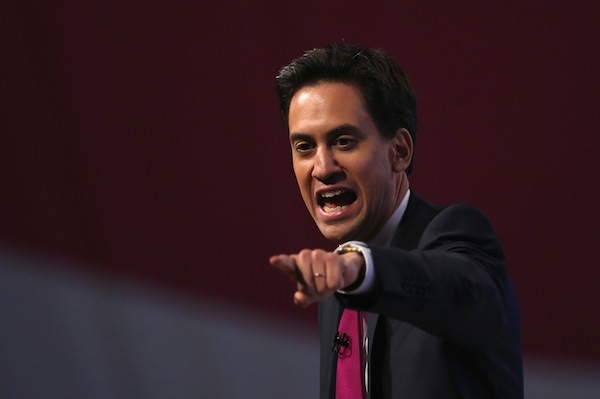Ed Miliband’s One Nation circus moves on to tackle low pay this week, with the Labour leader calling for more companies to pay their staff the Living Wage of at least £7.20 an hour. One of his most striking proposals comes from the Resolution Foundation’s Commission on Living Standards, which is to force top companies to publish details of what proportion of their staff are paid below the living wage. Though Miliband isn’t hinting at raising the statutory minimum wage to meet the living wage – clearly acknowledging the adverse impact that this hike could have on job creation when the economy remains so fragile – he still wants to name and shame organisations which fail to sign up to a voluntary scheme.
A living wage isn’t a bad idea so long as it remains voluntary, although Miliband’s name-and-shame plan does make it sound rather less voluntary: woe betide any company whose name appears on the list and finds itself a target of UK Uncut for not doing something that it has no obligation to do anyway. Boris Johnson has enjoyed success with his own voluntary scheme in London, partly because the economy in the capital is very different to the local economy in somewhere like Stoke-on-Trent.
But if Miliband fancies naming and shaming organisations which are failing to help people on low incomes make ends meet, perhaps he could have a little think about what One Nation housing would look like, given housing costs represent one of the biggest pressures. If there were a List of Shame on housebuilding, the previous Labour government of which he was a part would surely feature: the number of houses built per year peaked at 176,650 in 2007, which is a tiny number compared to the 1968 peak of 352,540. Labour’s lowest offering came in 2001, when 129,510 homes were completed. Economists estimate that the UK needs 250,000 new homes each year. Even when the sun was shining, Labour failed to get to grips with housebuilding in its 13 years of government, and we are now suffering from an affordability crisis, not just for owner-occupiers, but in the private rented sector too.
Miliband does have a positive offer for those on low incomes, rather than just a flagship policy of cutting the benefits of the workless family down the road. And that’s a good thing for Labour as it tries to appeal to strivers. The great shame for the coalition is that it doesn’t just have an even better positive offer for low incomes households: it has already brought it into action, but failed to reap the rewards. The Budget was such a shambles that few noticed the great triumph of taking two million workers out of income tax by raising the threshold to £9,200. That means that those on the very lowest wage that a firm can legally pay don’t then have a chunk of their salary taken back from them by the taxman: the below-living minimum wage is all theirs.
The 2015 election will be fought on the cost of living and voters will be on the lookout for the party which articulates their struggles the best and proposes the most attractive solution. Miliband is talking a good game here: the Coalition parties will need to ensure they can demonstrate they’ve played an even better game.







Comments